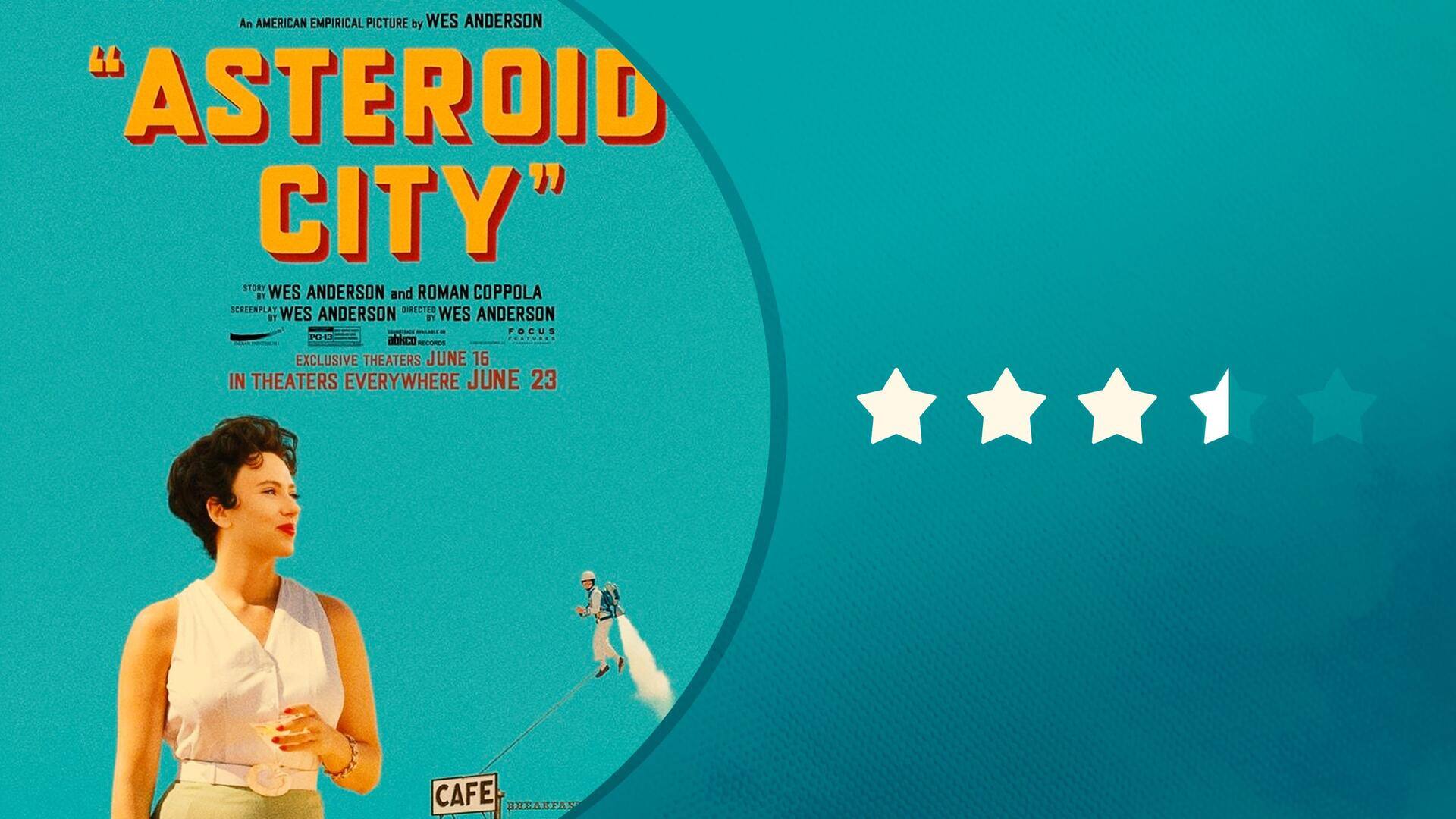
'Asteroid City' review: Delicious eye candy; complex, heavy existential commentary
What's the story
Wes Anderson's Asteroid City was released in Indian theaters on Friday (August 25), and as expected, it's emboldened in classic Anderson filmmaking style—deadpan humor, expansive, stylish, awe-inspiring sets, and a large ensemble cast. The film demands your unswerving attention because each frame speaks volumes, but in this audacious attempt, the drama-comedy also becomes too esoteric and extremely complex to follow. Here's our review.
Plot
Story-within-a-story structure
The metatextual plot has interwoven narratives—a play's televised production, the creation of the play and the lives of those involved in it, and the main plot, which describes the events of the aforementioned play. The main story is set in retro-futuristic 1955, where protagonists Augie (Jason Schwartzman) and Midge (Scarlett Johansson), among others, have come to attend a stargazing convention in Asteroid City.
#1
Commentary on existential crisis, meaning of life
Beneath the glorious eye candy that AC is, lies its tensions—existential crisis and humankind's relentless pursuit—and failure—to fathom its meaning. Lives seem to have ripped apart at the seams and there is a looming sense of emotional fraying and unending weariness. "I feel more at home outside the Earth's atmosphere," says Midge's daughter, and Augie's son Woodrow agrees. They're young, but already worn out.
#2
Exploration of grief and our response to it
Multiple characters try to make their peace with grief. Augie's wife has passed away but he almost lives in denial, and Midge—who has had multiple failed relationships—admits that she isn't always a good mother to her children, but feels no guilt. They are brought together by their fractured pasts and incomplete lives—a way of crawling out of their grief-stricken pasts.
#3
'AC' also seems like an homage to absurdist theater
I kept thinking of Samuel Beckett's existential absurdist play Waiting For Godot while watching AC, which deals with two men waiting for nothing definite. Absurdist drama relies heavily on questions of existential crisis and humankind's attempts to make something out of their lone shot at life. With its non-linear narrative, characters' angsts, disappointments, and confusion, AC seems to tip its hat to absurdist theater.
#4
Anderson's famous signature style sets and production design
The film uses different aspect ratios throughout; when the sequence is about the stage play, the screen is adjusted to give us that feel, and then it's subsequently changed in the next shot when the characters gaze at the sky. While watching AC on the 70mm, everything else ceases to exist and only Anderson, his ideas, his vision, and his creations spring to life.
#5
More on the production design and color palettes
When AC's narrator appears on screen to tell us more about the creation of the play, the playwright, and the actors, the screen is soaked in black and white—the events supposedly happened in the past, in a distant time. But when the main plot takes centerstage, warm hues of blue, yellow, and brown envelope everything—it's how the playwright/director envisions his work playing out onstage.
#6
Negative: Too complex for its own good!
The film is not long but it's extremely complex for its own good, snapping viewers' connection and cutting short engagement. The lack of subtitles also means it's exhausting to keep track of a couple of dialogues. Moreover, there's no time to look away from the screen. There are more characters than you can count, and a lot happens every single minute.
Verdict
Only watch it if you're familiar with Anderson's previous works
On the whole, visuals make Asteroid City delicious, but simultaneously, it's also daunting. Its absurdist techniques might get in the way of entertainment for some, but its production design, performances, and treatment of philosophy make it worthwhile. When a character complains, "I still don't understand the play," another replies, "Doesn't matter, just keep telling the story," and therein lies Anderson's take on existential debates.